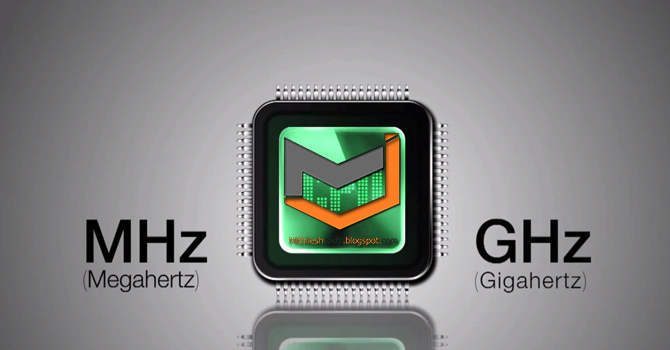In the computing world, processor speed is crucial to system performance. This speed is measured in megahertz (MHz) and gigahertz (GHz), terms that are essential to understanding how fast a processor can operate. Here, we’ll explore what these units mean and how they impact the efficiency of your computer.
What is a Megahertz?
A Megahertz is equivalent to one million hertz (Hz) and is used to measure the frequency, that is, the number of cycles per second that a processor can perform. One cycle represents a single processing operation, so a processor operating at 1 MHz can perform one million cycles per second. Historically, the first computers operated in the megahertz range, but today this measurement is more commonly seen in low-power devices or those that do not require much processing power.
What is a Gigahertz?
A Gigahertz is equal to one thousand megahertz, or one trillion hertz. In the context of modern processors, gigahertz best describes their speed, allowing the processor to complete one billion cycles per second. This means that a 3 GHz processor can perform three billion cycles per second, making it extremely fast and capable of handling complex operations and multiple tasks simultaneously.
Comparing Megahertz and Gigahertz
The difference between megahertz and gigahertz is fundamentally one of scale and processing efficiency:
- Evolution of Technology: The transition from using MHz to GHz in processors reflects advances in semiconductor technology, allowing for faster and more efficient devices .
- Impact on Performance: A higher GHz number indicates a greater ability of the processor to handle demanding tasks, such as advanced gaming, video editing, and 3D modeling software.
- Current Relevance: While MHz is still used to describe radio frequency and other electronic devices, GHz is now more relevant for evaluating the performance of computer and smartphone processors.</li >
For those interested in acquiring hardware that uses high-speed processors, the processors Ibertrónica’s server solutions offer advanced options that can handle intensive applications and significantly improve the efficiency of computer systems.
Conclusion
Understanding the difference between megahertz and gigahertz and how they apply to modern processors is crucial for anyone looking to optimize or better understand their computer’s performance. These units of measurement not only reflect the capability of a processor, but also help users make informed decisions when purchasing new devices or upgrading existing ones.
In our online catalog we have numerous servers already preconfigured. You can also contact us through our website, telephone (917 10 95 15) email ([email protected] ) or social networks, and request a quote without obligation. An Ibertrónica advisor will assist you and help you choose the server processor that best suits your needs and objectives.
With our servers, you can boost your business, increase your productivity and have the best support. All this, with a competitive price and adjusted to your needs.






